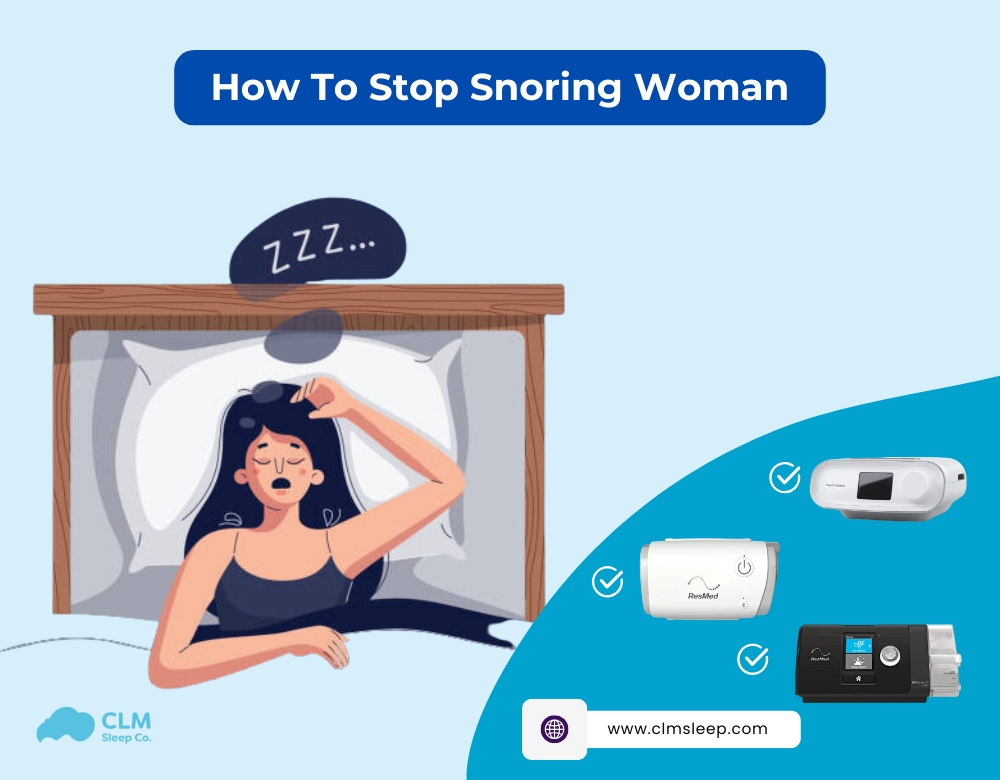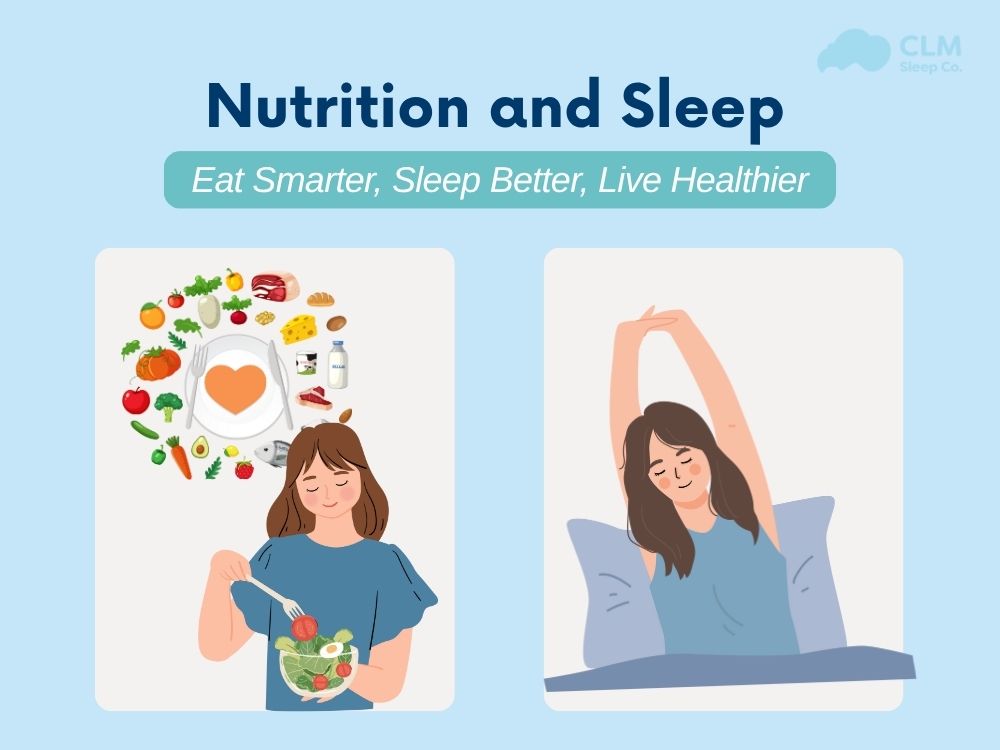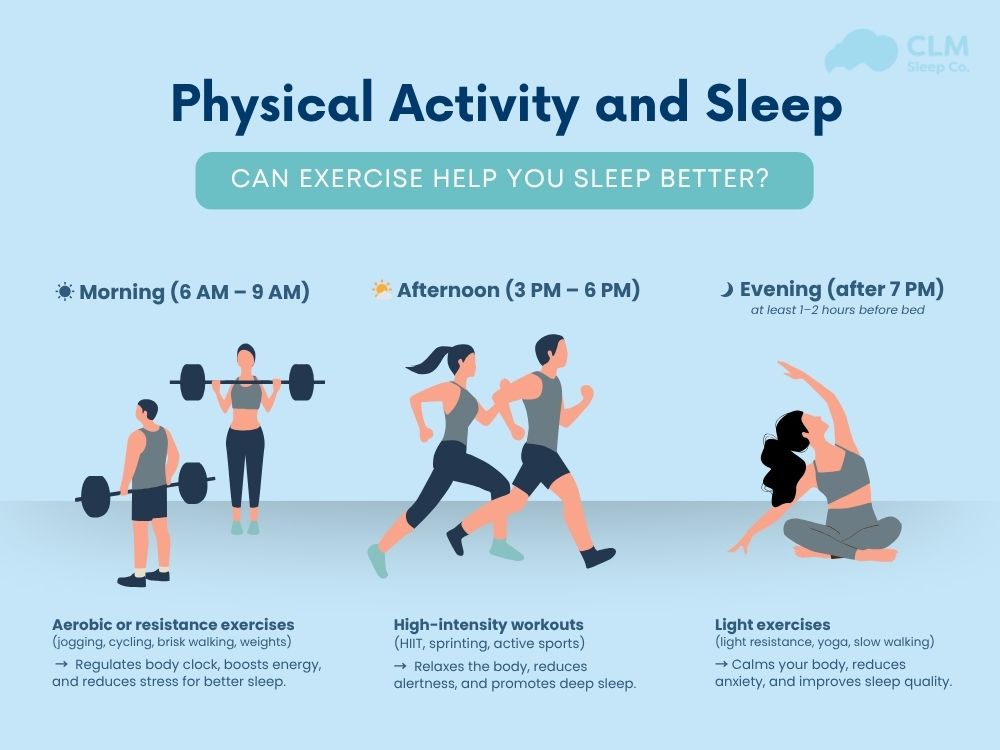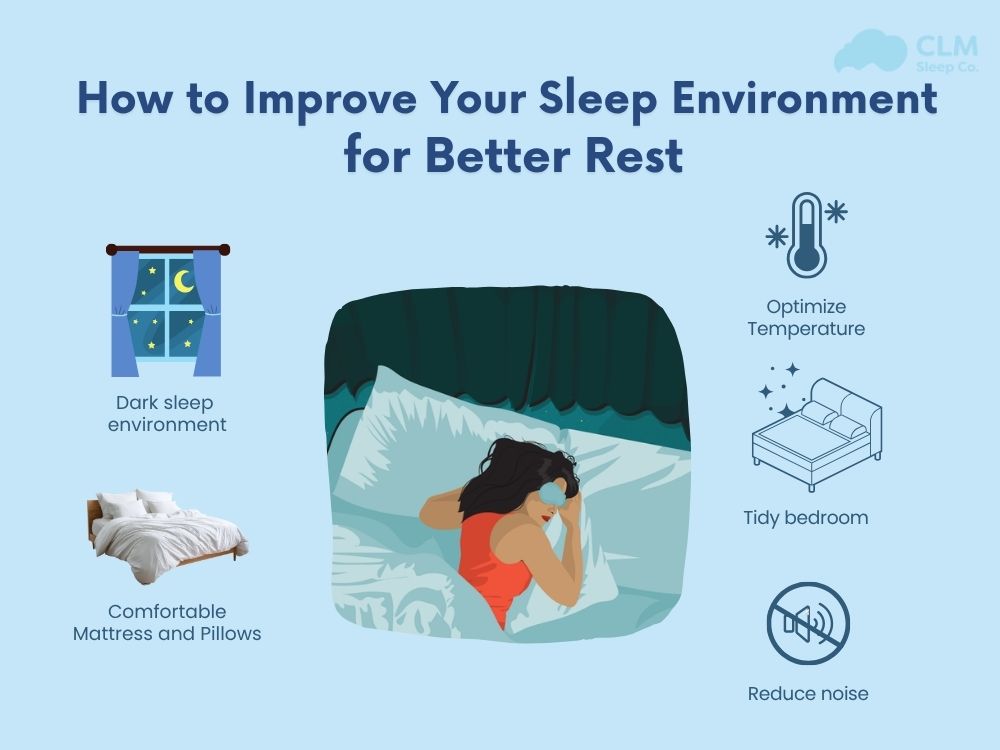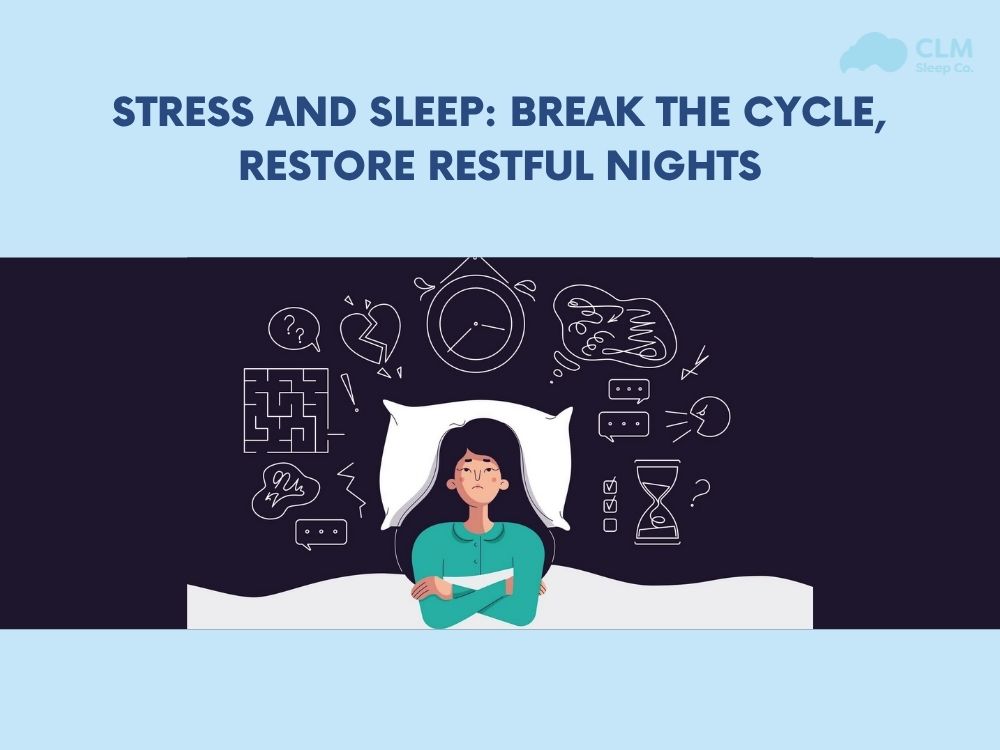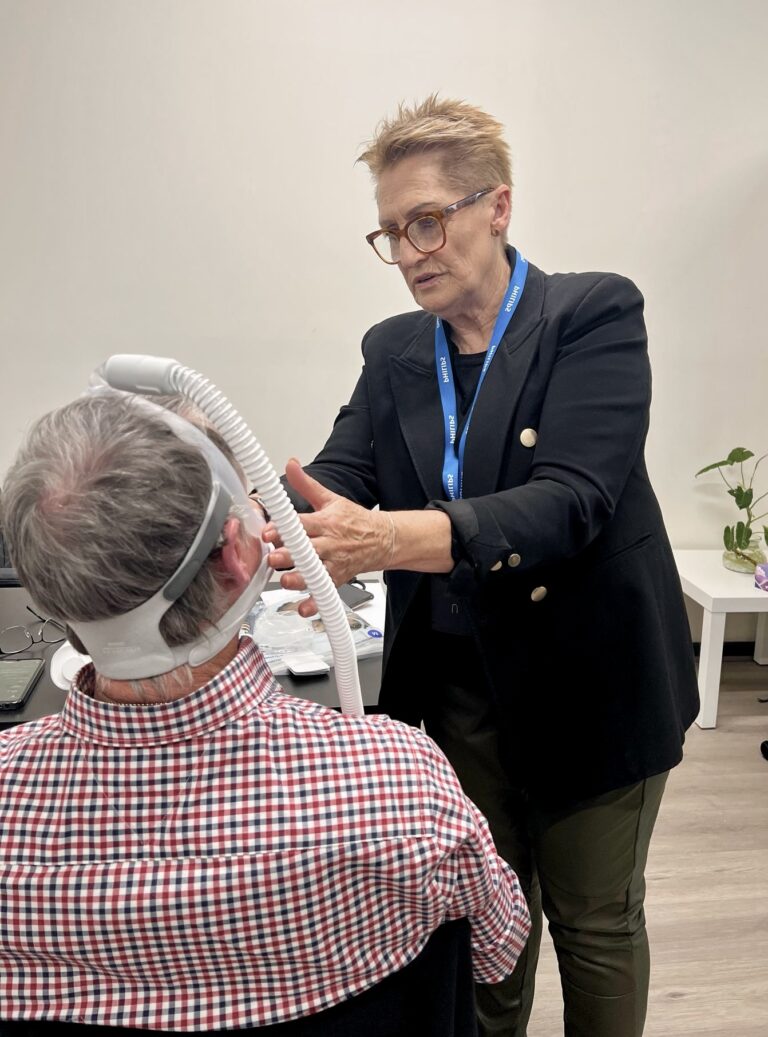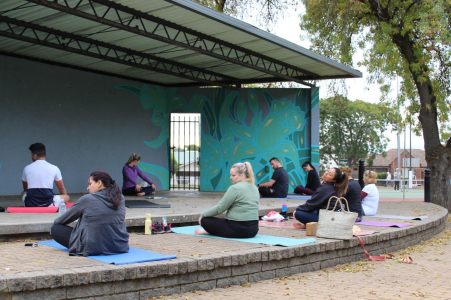Snoring leads to a typical common problem for women because its habit can screw up sleep – their partners, too. Though seemingly harmless when it snored sporadically, it causes fatigue, irritability, and eventually, a strain in relationships when it becomes consistent. Whether hormonal changes, weight gain, or relaxation in the muscle at the time of sleep is the reason for snoring- a reduction in that will enhance not only the quality of sleep but also well-being in general. This CLM Sleep article offers how to stop snoring woman effectively.
Overview of snoring in women
Snoring occurs when breathing causes the tissues in the airway to vibrate while sleeping. It is common among women and individuals assigned to females at birth. Almost all women experience snoring at some point and approximately 28% of adult women snore on a regular basis.
When a woman falls asleep, the muscles at the back of her nose, mouth, and throat naturally relax. As these tissues become looser and narrower in the airway, they are more likely to vibrate. More things can combine to hasten this whole process, and that vibrating becomes more coherent.
The characteristics of snoring in females include lighter and less frequent sounds than in males, but women snore too. Hormonal variations, pregnancy, and age also make them susceptible. Menopause, in particular, increases the likelihood of snoring due to changes in hormone levels that affect muscle tone and airway structure.
Snoring can significantly impact sleep quality, leading to fragmented rest and fatigue. This sleep disruption can, in turn, affect mood, productivity, and overall health. Moreover, snoring can strain relationships, especially if it disturbs the sleep of a partner, leading to frustration, sleep deprivation, or even relationship tension. Addressing snoring can improve both sleep quality and interpersonal well-being.
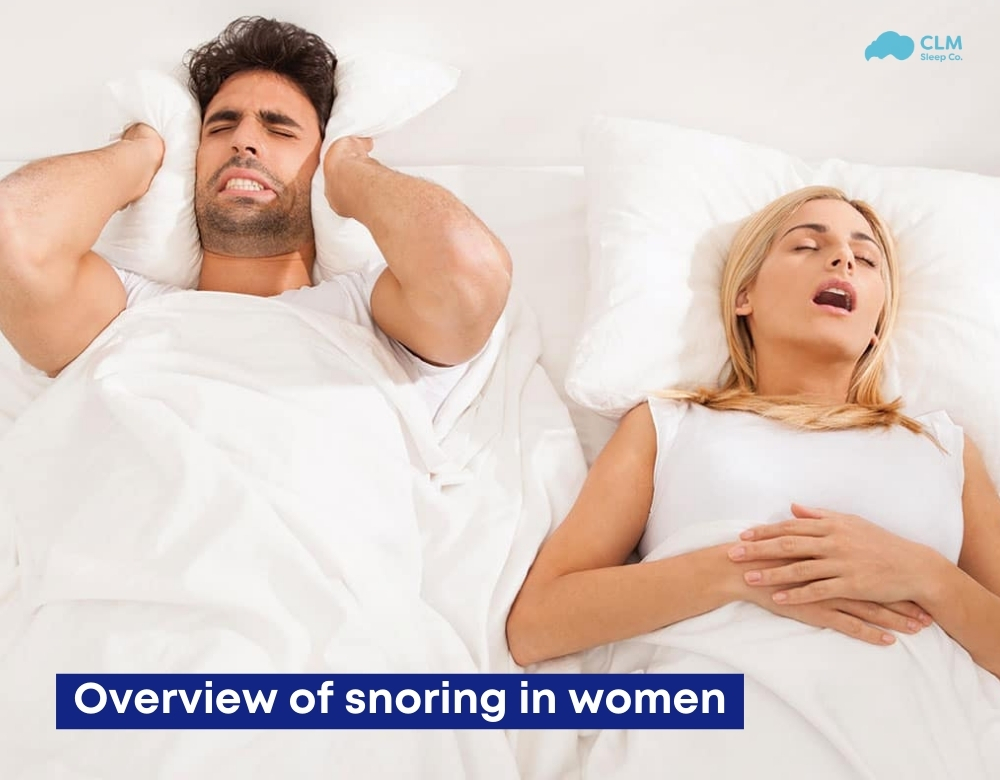
See more: Snoring in Children
Causes of Snoring in Women
Snoring in females can result from the interaction of several factors that sometimes trigger snoring in women, including hormonal changes lifestyle behaviors, and health scenarios that underlie it. Presentation— though generally innocuous, some chronic presentations may compromise the quality of sleep and general well-being. The following sections consider major causes of snoring in women: hormonal variations, added weight, sleep positions, genetic predisposition, and sleep apnea.
Hormonal Changes
Some hormonal changes, especially during menopause and pregnancy, can make women snore. Lowering estrogen and progesterone levels during menopause may cause relaxation of the musculature at the base of the throat, narrowing the air passage and hence snoring. Weight gain due to pregnancy also narrows the passage. Hormonal imbalances trigger snoring in women.
Weight and Fat Accumulation
Excess weight, especially around the neck and throat, can contribute to airway obstruction. The added fat can press on the airway, making it narrower and more prone to vibration, leading to snoring.
Sleeping Position and Lifestyle Habits
Some positions, such as lying on the back, may cause the relaxation of the tongue and soft palatal tissues and thus permit obstruction at the pharynx level—this can lead to snoring. Also, lifestyle habits that involve the consumption of alcohol and smoking can place loose musculature in the throat area further intensifying snoring problems.
Genetics
Genetics does play a role in snoring. A woman with a family history of snoring or obstructive sleep apnea is more likely to have the same problems. Other anatomical factors that make people more likely to snore are having a small throat, large tonsils, or a large tongue. In some cases, obesity and hypertension increase the risk of snoring.
Sleep Apnea
The most common disorder of sleep, apnea is a condition that is characterized by pauses in breathing. Such a condition is often associated with snoring. Since the airway may be blocked either partially or fully, conditions like heavy snoring and interrupted sleep compose some of the major symptoms of this disease. Women may have an increased incidence of sleep apnea, especially with the onset of menopause.
See more: Why Do People Snore? Common Causes and Solutions Explained
Lifestyle Changes to Reduce Snoring
How to stop snoring woman naturally? Simple changes to your daily habits and sleep routine can significantly reduce or eliminate snoring, while also improving overall health and sleep quality. From maintaining a healthy weight to adjusting your sleep position, several strategies can help minimize snoring. In this section, we’ll explore some of the most effective lifestyle changes for better sleep.
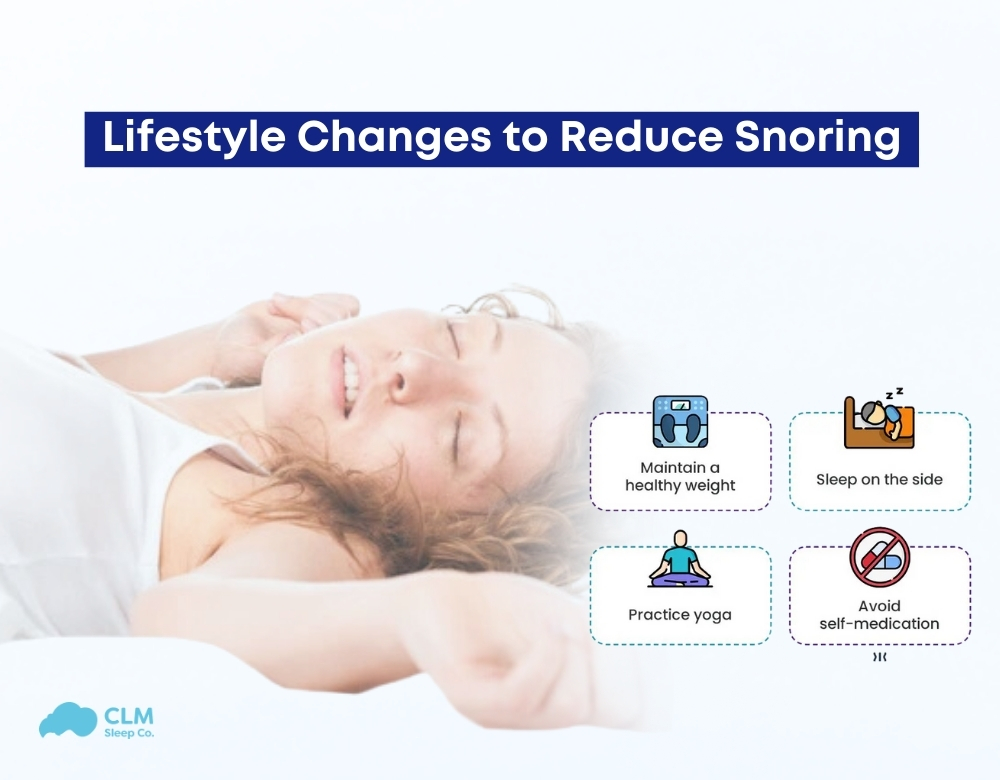
Maintain a Healthy Weight
Excess weight, especially around the neck, can increase the likelihood of snoring by narrowing the airway. Maintaining a healthy weight through a balanced diet and regular exercise can help reduce fat around the throat, improving airflow during sleep.
Avoid Alcohol Before Bed
Alcohol relaxes the muscles of the throat, which can exacerbate snoring. Avoiding alcohol, particularly in the evening, can help prevent the muscles from becoming too relaxed and obstructing the airway.
Sleep on Your Side
Sleeping on your back can cause the tongue and soft tissues in the throat to collapse, partially blocking the airway. Sleeping on your side helps keep the airway open and reduces the likelihood of snoring. Consider using a body pillow or other aids to encourage side sleeping.
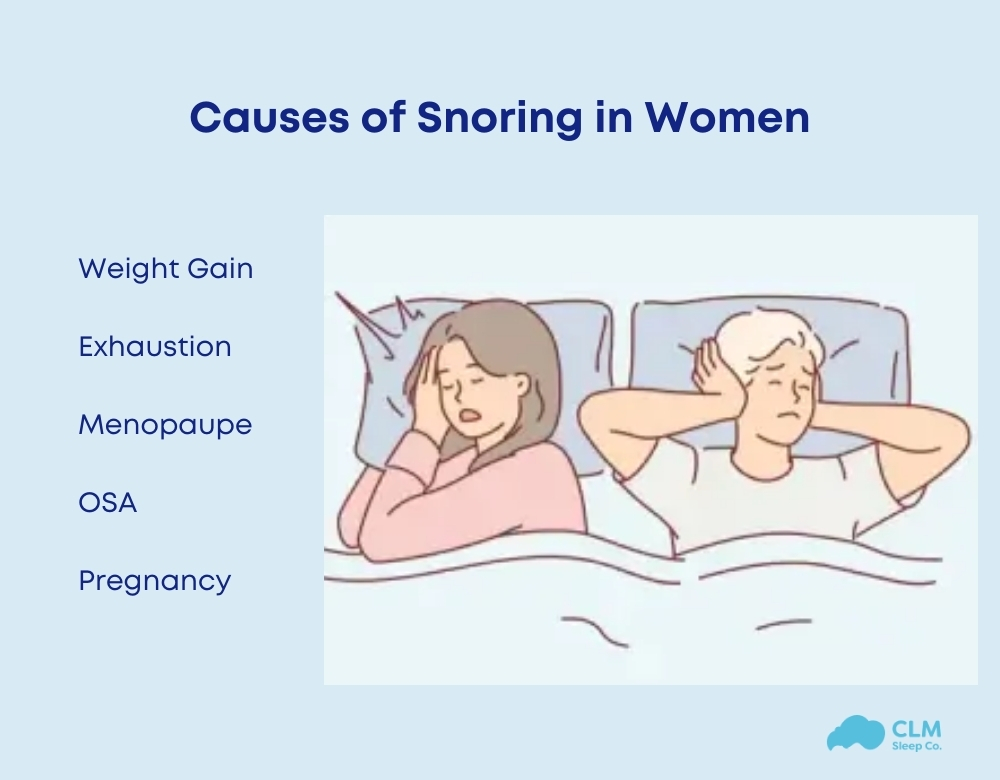
Medical Solutions
If lifestyle changes don’t stop snoring, medical treatments may be needed. For persistent or severe snoring, especially if linked to sleep apnea, professional help is essential. Medical solutions range from non-invasive options like nasal strips to advanced treatments like CPAP therapy or surgery.
CPAP Therapy for Sleep Apnea
For women who experience snoring due to sleep apnea, Continuous Positive Airway Pressure (CPAP) therapy is a common and effective treatment. A CPAP machine delivers a constant flow of air through a mask, keeping the airway open and preventing pauses in breathing, which reduces snoring and improves sleep quality.
Explore expert resources to enhance your sleep quality and find trusted sleep apnea treatment devices from leading brands such as ResMed, F&P, Philips, and others. Check out CPAP Adelaide and browse our online store, Cpapdiscount, for a wide range of options.
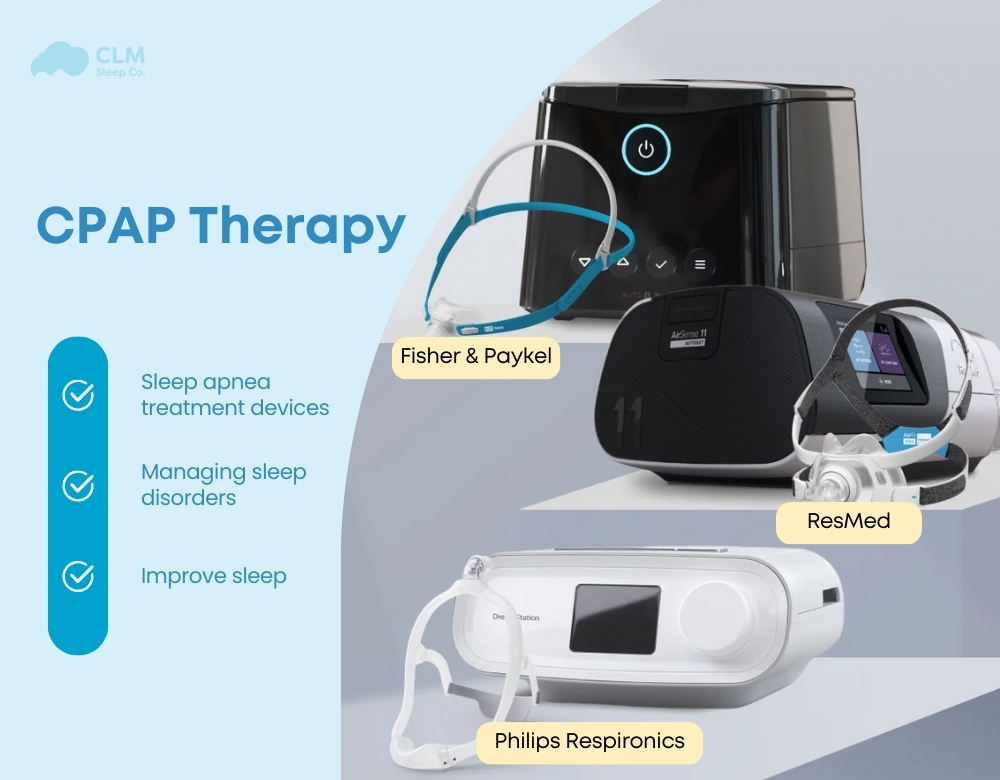
Nasal Strips or Dilators
Nasal strips or dilators are simple, non-invasive solutions that can help reduce snoring caused by nasal congestion or blockage. These devices help widen the nasal passages, allowing for better airflow and reducing the vibrations that lead to snoring.
See more: Snoring mouth guard
Surgery Options for Severe Cases
In severe cases of snoring, where lifestyle changes and other treatments are ineffective, surgery may be considered. Surgical options can include procedures to remove excess tissue from the throat, correct structural abnormalities, or tighten the muscles around the airway to prevent snoring. Surgery is typically recommended for cases where snoring is linked to sleep apnea or other serious health concerns.
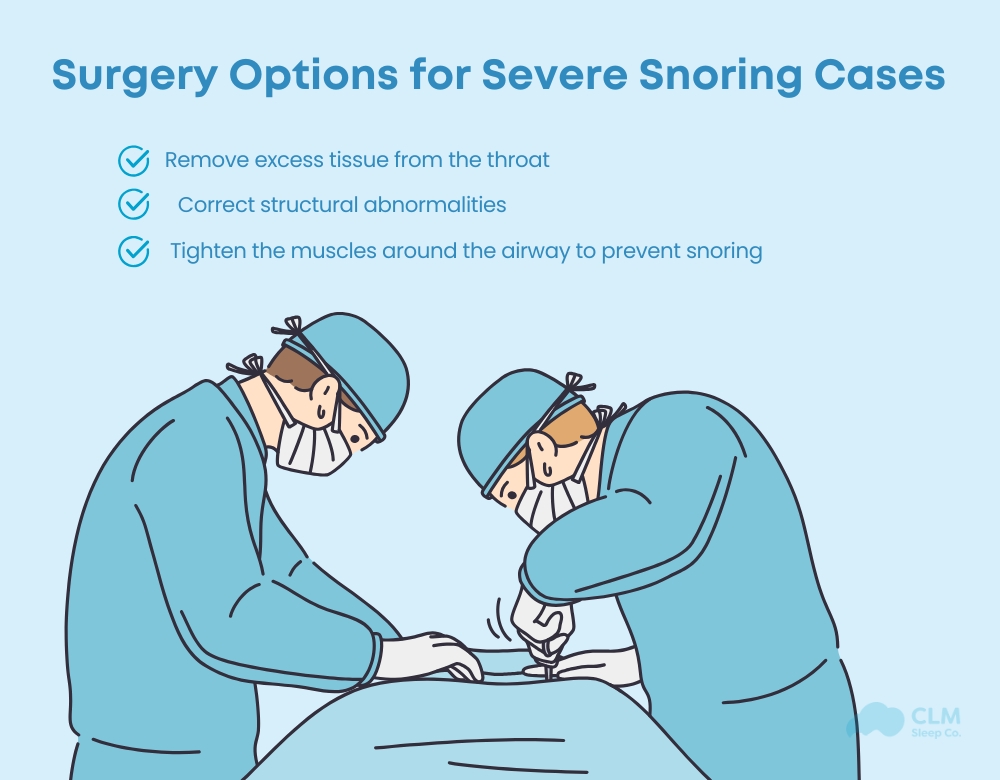
When to See a Doctor
If snoring is persistent and accompanied by symptoms like daytime fatigue or choking episodes during sleep, it may indicate a more serious underlying condition, such as sleep apnea. These symptoms suggest that the airway is being significantly obstructed during sleep, leading to disrupted rest and potential health risks. In such cases, it’s important to consult a doctor to assess the situation and explore appropriate treatment options.
Conclusion of the article
This article should have provided you with thorough details on how to stop snoring in woman, giving insight into the causes, lifestyle changes, medical answers, and when to get professional help. Now that you know what brings about snoring, can seek appropriate treatment that will enhance the quality of sleep and, by extension, improve overall health.
For a full assessment and individualized treatment recommendations on sleep apnea, you may want to come over to CLM Sleep. Our panel of specialists provides diagnostic and treatment services that can help optimize your sleeping patterns and enhance your quality of life. Don’t allow snoring to disrupt your sleep. Begin your journey to a good night’s rest today.
